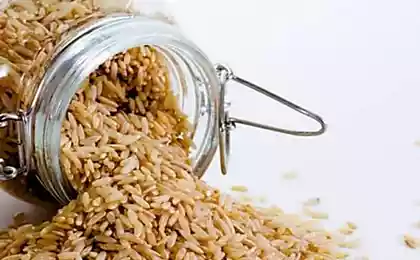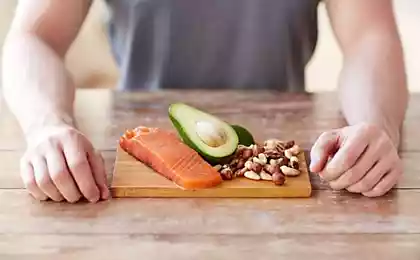568
WHY you need to avoid talking about diet
I have worked with hundreds of patients who tried to get out of the trap diet/uncontrolled overeating and build healthy relationships with food and their own bodies. But after our sessions, they have to return to the world of giratoria, where all obsessed with food and diet: their friends, family, colleagues, doctors, friends and even strangers give them advice, directly opposite my.
Please stop!
I usually write books and articles from the position of a sympathetic person, as well understand the despair and pain, experiencing those who cannot break the vicious circle of dieting and overeating.
However, if you paint all your latest diet and trying to convince her other (even the best of intentions), then it is time for a serious conversation.
I have gathered the most frequent complaints from people who are trying to figure out what to say to talk about diets and advice on weight loss. I also write, than you to help these people.
(Note: in each case, I will write in the first person; it is the generalizations that have been collected over 30 years).
Ninety five million four hundred five thousand thirty six
1. I have an eating disorder.
I'm trying to beat compulsive overeating, and Yes, such a disease actually exists! Impossible strong-willed decision "to take and to stop eating". I'm working on this problem with a doctor (or yourself) and try to establish a normal relationship with food.
You may have no idea that my eating disorder — my appearance and weight are not. You know that uncontrolled overeating is often triggered by dietary thinking? So when you advise me to count calories and lose weight, it's actually actively fueling my disease.
How you can help:
To recover from compulsive overeating, I need to re-learn to hear the signals of hunger and fullness, to stop dividing foods into "good" and "bad" and to find a way to deal with emotions without resorting to food.
Please stop to evaluate what I eat and how I look (people with eating disorders can have shapes of any weight and look much different).
If you belong to a narrow circle of people with whom I share my feelings about my disorder, don't forget me, occasionally ask how I was doing. If you are an expert in the field of physical and/or mental health and want to learn more about compulsive overeating, please read the book "Diets — no: a guide to treating compulsive overeating, compulsive eating and emotional overeating" ("Beyond a Shadow of a Diet: The Comprehensive Guide to Treating Binge Eating Disorder, Compulsive Eating, and Emotional Overeating"). Especially if you're asking me to lose weight because it is supposedly part of the treatment plan.
2. In appearance it is impossible to determine the presence of health problems.
You can not assume that I am unwell, if you don't like my weight.
I may weigh more than others, but I have a healthy attitude to food, I am active and care about health. Maybe I have some goals I want I need to develop healthy habits, and because of these habits, my weight can change, but maybe not.
You know that many of those who fit into typical for our culture, the definition of "people with a healthy weight," hold this weight very unhealthy ways? So when you make conclusions about the state of my health based on the figures you think are stereotyped and biased.
How you can help:
If you are one of those with whom I can discuss my health, let's discuss evidence-based methods and approaches that are truly relevant.
Together we can walk, it will support me. You might want to read some sensible articles about the relationship between weight and health, which calls into question some of the myths. If you are a doctor, it would be awesome if you read an article about the approach, which takes into account the weight.
By the way, did you know that a study by the National Institute of health USA (National Institutes of Health) confirmed the results of more than forty other studies that showed that people with "excess" weight (according to body mass index) superior to all in terms of life expectancy? And those who fall in the group with "overweight" (this includes the majority of the population), live as much as people with "normal" weight.
Whatever the state of my health, I deserve respect in the weight that I have, and have the right to make their own decisions in all that concerns my body.
3. Conversations about diet cause boredom.
"Handbook of survivor diet" ("The Diet Survivor's Handbook") States: "avoid conversations about diet: they are dull, awaken the competitive spirit in women not give you to understand its true nature and essence."
I tend to agree with this.
After decades of discussions, the latest diets (which, of course, this one is sure will work) — I have to hear about them can't. I am very sorry that you are experiencing anxiety and frustration about diet. I found that by learning to tune into body needs and eat intuitively, I began to receive from food is much more satisfying, and my relationship to food has become more harmonious.
I learned that constant attempts to lose weight followed a return fraught with increased risk of developing eating disorders, health problems, depression, low self-esteem, and further weight gain. So, if you want to talk about his diet, I'm not interested anymore.
How you can help:
Please respect the fact that I will no longer participate in conversations that promote unhealthy preoccupation with food and weight, and so I will try to change the subject.
If you will insist on when we communicate in a wider circle, I hope you will understand if I leave the room. I'm glad we can spend time together. Let's talk about what inspires us, what we want to achieve. Please be interested in the events of my life, I will treat you with the same interest.
If you are struggling with your relationship to food or the perception of one's own body, of course, we can somehow discuss, but I'm not going to support the idea that diet, veiled diet or just a desire to lose weight is a healthy phenomenon that is worth spending time.
4. I'm thicker than you.
It hurts when you say things like: "I feel bad, because I'm too fat" and "I need to lose weight, then I will look more-less acceptable".
How do you think I feel to hear it, if I'm fatter you? Do you think about how your words affect others, especially those who, like me, are particularly sensitive to estimates appearance?
When you talk about weight in a negative way and condemn your body, thereby you condemn me.
How you can help:
I understand that you, like many of us, to transform external cultural pressure in the inner, pointing to himself, and I think that in order to be happy, healthy, sexy and successful, it needs to be thin. On the one hand, I understand that you about me do not even think your criticism is aimed solely on himself. I really try not to take that personally, your negative thoughts about body. I don't want to me they stick better let it bounce off like a ball.
Still, I think it's time to behave more consciously.
Please, think about what kind of message are your critical remarks about my weight, especially when you are dealing with a more complete man.
5. Is you this the first time?
You talk about their diet as if finally found the solution to all problems (this includes you, Oprah!). But if it not your first diet, then you already know what will happen next. With me it has happened many times.
When the weight begins to decline, you feel that you are doing everything right, everything is in your hands, everything they say compliments, and it is so nice! I must admit, I watch as you lose weight, and even a little jealous. But do you remember how embarrassing it is when the weight begins to return, and all fall silent?
I remember.
So when you are pitching me his new diet, to remind myself I was once in your place and told me how beautiful I look. It was the case, Yes.
How you can help:
Rather, here I can help you.
I won't tell you compliments about your new weight as the others. Don't think that it's because you care about me — it is not. Of course, I wish you well, but I know that in this situation everyone is against you. I don't want to contribute to that shame, which you most likely will experience if/when your weight get back.
I appreciate you regardless of weight.
I'm happy to say other positive aspects: your new scarf, a talent for music, dance, fine art, your desire to make the world a better place. Thanks for your lovely qualities I want to communicate with you, and they have no relationship to the numbers on the scales.
6. In fact, dieting lead to unnatural weight gain.
Did you know that the fad diets leads to the fact that people are gaining more and more weight, which in the end is impossible to get rid of?
Reading the book "Health at any size: the surprising truth about your weight" ("Health At Every Size: The Surprising Truth About Your Weight"), I finally got the scientific explanation of the phenomenon, which is experienced: the more I diet the fatter we become.
It turns out that weight is a much more complex phenomenon than "received calories wasted calories." The whole trip is the weight that I underwent in an attempt to get his body under control, turned against me. You know that most of those who have been dieting, gaining weight, and about two-thirds weigh more than before the diet?
So advising me to go on a diet, you actually condemn me to be better than for me nature intended.
How you can help:
You may want to look at your own experience. How much do you weigh now and how it was before you first tried to go on a diet?
About myself I can say that looking at pictures where I thought I was too fat, now I think "what if". If I was taught to feel comfortable in my body then, I would not have brought yourself diets up to my current weight. If the same thing happened, let's vzgrustnut about what had to go through, and let us support each other and live life to the fullest now, in the present.
The diet industry makes that we are ashamed of your body. Almost any diet works in the short term, over time they almost always prove to be ineffective. But instead of blaming the diet, we blame ourselves.
Just think how many we win, if we can get rid of guilt and shame. It's not that we failed, we failed the diet!
7. Hostility to the body actually affects my health and well-being.
There's so much information that makes me worry about the weight and their self-esteem.
Since childhood I was told that if I'm not thin enough, none of the men do not want to meet with me. My doctor told me that need to lose weight, even though all my numbers were normal. But did you know that your attitude about weight affects physical and mental health more than the numbers on the scales?
Those who are dissatisfied with their body, higher blood pressure and glucose content in blood on an empty stomach, than those who are satisfied with their body, though they weigh the same. This is true for people with any BMI (body mass index).
If you say you need to go on a diet to lose weight, it means that I can be happy with her body only at a certain size, and such a setup is harmful to health.
How you can help:
It would be great if you will consider such important factor as the "weight diversity".
Surely you believe that we should accept and welcome diversity when it comes to religious beliefs, ethnicity and race, gender and sexual orientation. If we can talk about the diversity of body size in a positive way, we will win — me and you.
8. You reinforce cultural prejudices.
You know, the "personal is political".
It is impossible to count all people (including the active followers of the diet), which I think is absurd cultural standards of slenderness. We came to the conclusion that unhealthy eating behavior (e.g., refusal of meals or entire food groups, a sense of guilt about eaten) was considered normal. We do all sorts of conclusions based on the weight of others and comment on it.
But do you realize that everything that we do, say and even think has real value? When you are worried about weight and diets, you strengthen the relevant cultural norms.
How you can help:
Let's work together to change the cultural climate in relation to diet, nutrition, weight, and perception of the body. Each of us depends very much.
Discard diets. Stop negative comments about your body and about the bodies of others. Ridicule completeness, do not laugh at such jokes. Stop calling food "good" and "bad" like food is a moral issue.
Let instead, you will have your own relationship with food based on your connection with your body signals of hunger and satiety. Explore the rich and diverse world of food, which will nourish your home and unique body. Do what is good for you and improve health without regard to weight. Respect for a natural weight diversity. Reconsider their ideas about beauty and figure, come from outside.
I know this is hard to do. My clients go a long way in trying to stop thinking in terms of diets and to achieve harmony in food.
But as a result their life becomes full, rich, happy. They don't lay their dreams for the future when they lose weight up to a certain size. They do not put artificial boundaries in relationships with food, their life is not to be called poor. I hope you too will come to this.
But if you want to learn more about how to abandon diets, I encourage you to familiarize with those works mentioned in the article. published
Author: Judith Matts (Judith Matz) translation Marina Nestrugina
P. S. And remember, only by changing their consumption — together we change the world! ©
Join us in Facebook , Vkontakte, Odnoklassniki
Source: intueat.ru/journal/ya-ne-hochu-slyshat-o-vashej-diete/
Please stop!
I usually write books and articles from the position of a sympathetic person, as well understand the despair and pain, experiencing those who cannot break the vicious circle of dieting and overeating.
However, if you paint all your latest diet and trying to convince her other (even the best of intentions), then it is time for a serious conversation.
I have gathered the most frequent complaints from people who are trying to figure out what to say to talk about diets and advice on weight loss. I also write, than you to help these people.
(Note: in each case, I will write in the first person; it is the generalizations that have been collected over 30 years).
Ninety five million four hundred five thousand thirty six
1. I have an eating disorder.
I'm trying to beat compulsive overeating, and Yes, such a disease actually exists! Impossible strong-willed decision "to take and to stop eating". I'm working on this problem with a doctor (or yourself) and try to establish a normal relationship with food.
You may have no idea that my eating disorder — my appearance and weight are not. You know that uncontrolled overeating is often triggered by dietary thinking? So when you advise me to count calories and lose weight, it's actually actively fueling my disease.
How you can help:
To recover from compulsive overeating, I need to re-learn to hear the signals of hunger and fullness, to stop dividing foods into "good" and "bad" and to find a way to deal with emotions without resorting to food.
Please stop to evaluate what I eat and how I look (people with eating disorders can have shapes of any weight and look much different).
If you belong to a narrow circle of people with whom I share my feelings about my disorder, don't forget me, occasionally ask how I was doing. If you are an expert in the field of physical and/or mental health and want to learn more about compulsive overeating, please read the book "Diets — no: a guide to treating compulsive overeating, compulsive eating and emotional overeating" ("Beyond a Shadow of a Diet: The Comprehensive Guide to Treating Binge Eating Disorder, Compulsive Eating, and Emotional Overeating"). Especially if you're asking me to lose weight because it is supposedly part of the treatment plan.
2. In appearance it is impossible to determine the presence of health problems.
You can not assume that I am unwell, if you don't like my weight.
I may weigh more than others, but I have a healthy attitude to food, I am active and care about health. Maybe I have some goals I want I need to develop healthy habits, and because of these habits, my weight can change, but maybe not.
You know that many of those who fit into typical for our culture, the definition of "people with a healthy weight," hold this weight very unhealthy ways? So when you make conclusions about the state of my health based on the figures you think are stereotyped and biased.
How you can help:
If you are one of those with whom I can discuss my health, let's discuss evidence-based methods and approaches that are truly relevant.
Together we can walk, it will support me. You might want to read some sensible articles about the relationship between weight and health, which calls into question some of the myths. If you are a doctor, it would be awesome if you read an article about the approach, which takes into account the weight.
By the way, did you know that a study by the National Institute of health USA (National Institutes of Health) confirmed the results of more than forty other studies that showed that people with "excess" weight (according to body mass index) superior to all in terms of life expectancy? And those who fall in the group with "overweight" (this includes the majority of the population), live as much as people with "normal" weight.
Whatever the state of my health, I deserve respect in the weight that I have, and have the right to make their own decisions in all that concerns my body.
3. Conversations about diet cause boredom.
"Handbook of survivor diet" ("The Diet Survivor's Handbook") States: "avoid conversations about diet: they are dull, awaken the competitive spirit in women not give you to understand its true nature and essence."
I tend to agree with this.
After decades of discussions, the latest diets (which, of course, this one is sure will work) — I have to hear about them can't. I am very sorry that you are experiencing anxiety and frustration about diet. I found that by learning to tune into body needs and eat intuitively, I began to receive from food is much more satisfying, and my relationship to food has become more harmonious.
I learned that constant attempts to lose weight followed a return fraught with increased risk of developing eating disorders, health problems, depression, low self-esteem, and further weight gain. So, if you want to talk about his diet, I'm not interested anymore.
How you can help:
Please respect the fact that I will no longer participate in conversations that promote unhealthy preoccupation with food and weight, and so I will try to change the subject.
If you will insist on when we communicate in a wider circle, I hope you will understand if I leave the room. I'm glad we can spend time together. Let's talk about what inspires us, what we want to achieve. Please be interested in the events of my life, I will treat you with the same interest.
If you are struggling with your relationship to food or the perception of one's own body, of course, we can somehow discuss, but I'm not going to support the idea that diet, veiled diet or just a desire to lose weight is a healthy phenomenon that is worth spending time.
4. I'm thicker than you.
It hurts when you say things like: "I feel bad, because I'm too fat" and "I need to lose weight, then I will look more-less acceptable".
How do you think I feel to hear it, if I'm fatter you? Do you think about how your words affect others, especially those who, like me, are particularly sensitive to estimates appearance?
When you talk about weight in a negative way and condemn your body, thereby you condemn me.
How you can help:
I understand that you, like many of us, to transform external cultural pressure in the inner, pointing to himself, and I think that in order to be happy, healthy, sexy and successful, it needs to be thin. On the one hand, I understand that you about me do not even think your criticism is aimed solely on himself. I really try not to take that personally, your negative thoughts about body. I don't want to me they stick better let it bounce off like a ball.
Still, I think it's time to behave more consciously.
Please, think about what kind of message are your critical remarks about my weight, especially when you are dealing with a more complete man.
5. Is you this the first time?
You talk about their diet as if finally found the solution to all problems (this includes you, Oprah!). But if it not your first diet, then you already know what will happen next. With me it has happened many times.
When the weight begins to decline, you feel that you are doing everything right, everything is in your hands, everything they say compliments, and it is so nice! I must admit, I watch as you lose weight, and even a little jealous. But do you remember how embarrassing it is when the weight begins to return, and all fall silent?
I remember.
So when you are pitching me his new diet, to remind myself I was once in your place and told me how beautiful I look. It was the case, Yes.
How you can help:
Rather, here I can help you.
I won't tell you compliments about your new weight as the others. Don't think that it's because you care about me — it is not. Of course, I wish you well, but I know that in this situation everyone is against you. I don't want to contribute to that shame, which you most likely will experience if/when your weight get back.
I appreciate you regardless of weight.
I'm happy to say other positive aspects: your new scarf, a talent for music, dance, fine art, your desire to make the world a better place. Thanks for your lovely qualities I want to communicate with you, and they have no relationship to the numbers on the scales.
6. In fact, dieting lead to unnatural weight gain.
Did you know that the fad diets leads to the fact that people are gaining more and more weight, which in the end is impossible to get rid of?
Reading the book "Health at any size: the surprising truth about your weight" ("Health At Every Size: The Surprising Truth About Your Weight"), I finally got the scientific explanation of the phenomenon, which is experienced: the more I diet the fatter we become.
It turns out that weight is a much more complex phenomenon than "received calories wasted calories." The whole trip is the weight that I underwent in an attempt to get his body under control, turned against me. You know that most of those who have been dieting, gaining weight, and about two-thirds weigh more than before the diet?
So advising me to go on a diet, you actually condemn me to be better than for me nature intended.
How you can help:
You may want to look at your own experience. How much do you weigh now and how it was before you first tried to go on a diet?
About myself I can say that looking at pictures where I thought I was too fat, now I think "what if". If I was taught to feel comfortable in my body then, I would not have brought yourself diets up to my current weight. If the same thing happened, let's vzgrustnut about what had to go through, and let us support each other and live life to the fullest now, in the present.
The diet industry makes that we are ashamed of your body. Almost any diet works in the short term, over time they almost always prove to be ineffective. But instead of blaming the diet, we blame ourselves.
Just think how many we win, if we can get rid of guilt and shame. It's not that we failed, we failed the diet!
7. Hostility to the body actually affects my health and well-being.
There's so much information that makes me worry about the weight and their self-esteem.
Since childhood I was told that if I'm not thin enough, none of the men do not want to meet with me. My doctor told me that need to lose weight, even though all my numbers were normal. But did you know that your attitude about weight affects physical and mental health more than the numbers on the scales?
Those who are dissatisfied with their body, higher blood pressure and glucose content in blood on an empty stomach, than those who are satisfied with their body, though they weigh the same. This is true for people with any BMI (body mass index).
If you say you need to go on a diet to lose weight, it means that I can be happy with her body only at a certain size, and such a setup is harmful to health.
How you can help:
It would be great if you will consider such important factor as the "weight diversity".
Surely you believe that we should accept and welcome diversity when it comes to religious beliefs, ethnicity and race, gender and sexual orientation. If we can talk about the diversity of body size in a positive way, we will win — me and you.
8. You reinforce cultural prejudices.
You know, the "personal is political".
It is impossible to count all people (including the active followers of the diet), which I think is absurd cultural standards of slenderness. We came to the conclusion that unhealthy eating behavior (e.g., refusal of meals or entire food groups, a sense of guilt about eaten) was considered normal. We do all sorts of conclusions based on the weight of others and comment on it.
But do you realize that everything that we do, say and even think has real value? When you are worried about weight and diets, you strengthen the relevant cultural norms.
How you can help:
Let's work together to change the cultural climate in relation to diet, nutrition, weight, and perception of the body. Each of us depends very much.
Discard diets. Stop negative comments about your body and about the bodies of others. Ridicule completeness, do not laugh at such jokes. Stop calling food "good" and "bad" like food is a moral issue.
Let instead, you will have your own relationship with food based on your connection with your body signals of hunger and satiety. Explore the rich and diverse world of food, which will nourish your home and unique body. Do what is good for you and improve health without regard to weight. Respect for a natural weight diversity. Reconsider their ideas about beauty and figure, come from outside.
I know this is hard to do. My clients go a long way in trying to stop thinking in terms of diets and to achieve harmony in food.
But as a result their life becomes full, rich, happy. They don't lay their dreams for the future when they lose weight up to a certain size. They do not put artificial boundaries in relationships with food, their life is not to be called poor. I hope you too will come to this.
But if you want to learn more about how to abandon diets, I encourage you to familiarize with those works mentioned in the article. published
Author: Judith Matts (Judith Matz) translation Marina Nestrugina
P. S. And remember, only by changing their consumption — together we change the world! ©
Join us in Facebook , Vkontakte, Odnoklassniki
Source: intueat.ru/journal/ya-ne-hochu-slyshat-o-vashej-diete/























